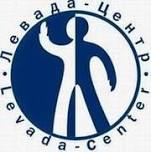Why are some observers more sensitive to autocrats’ perceptions than democrats’ need for solidarity? Excellent riposte from @NEDemocracy board member @AmbDanFried https://t.co/rvra4LvJuB
— Democracy Digest (@demdigest) July 29, 2020
According to the most recent Levada poll, public confidence in Vladimir Putin has plummeted to 23 percent, the lowest ever recorded, notes Vladimir Kara-Murza, the vice-president of the Free Russia Foundation.

Levada
The protests in Russia’s Far East have shown the true worth of official election figures, as in the recent plebiscite on extending Putin’s rule. Of course, the Kremlin could opt for the same tactic in next year’s polls, “winning” the vote count if not the election. But Khabarovsk may have just shown the rest of Russia what could happen afterward, he writes for The Post.
Russia’s recent protests, including Ekaterinburg, Shiyes and the Moscow city council election rallies, have concentrated on more clearly articulated political goals and projects of social change that could be achieved through state institutions, according to members of the Public Sociology Laboratory, a team of Russian social scientists.
This path has led from self-absorbed protest actions (“happenings”) to claims for an equal dialogue and substantive conflict with the state, a demand for reforming the state and democracy, and, at last, the right to speak in the name of the Russian constitution. This is why official silence towards protest demands – let alone the rewriting of the constitution – will only deepen the crisis of legitimacy, they write for Open Democracy.
 One decade ago, the Kremlin faced its first major regional protests when thousands took to the streets in Kaliningrad to demand the resignation of an unpopular governor — a storm the regime easily weathered with a combination of carrots and sticks, CEPA’s Brian Whitmore writes.
One decade ago, the Kremlin faced its first major regional protests when thousands took to the streets in Kaliningrad to demand the resignation of an unpopular governor — a storm the regime easily weathered with a combination of carrots and sticks, CEPA’s Brian Whitmore writes.
Are we about to see a replay of the harsh repression of 1962, the contagion of 1989, or the passive aggressive manipulation of 2010? Is Khabarovsk a Novocherkassk redux? A Kuzbass relay? Or a Kaliningrad rerun? Or is it something else entirely?
Joining Whitmore on the latest Power Vertical Podcast are Kara-Murza, chairman of the Boris Nemtsov Foundation, and a columnist for The Washington Post, and Maria Snegovaya, a fellow with CEPA’s Russia Program and a postdoctoral fellow at Johns Hopkins University.







